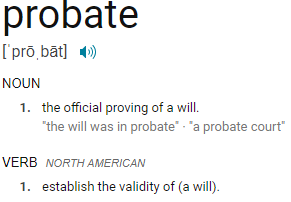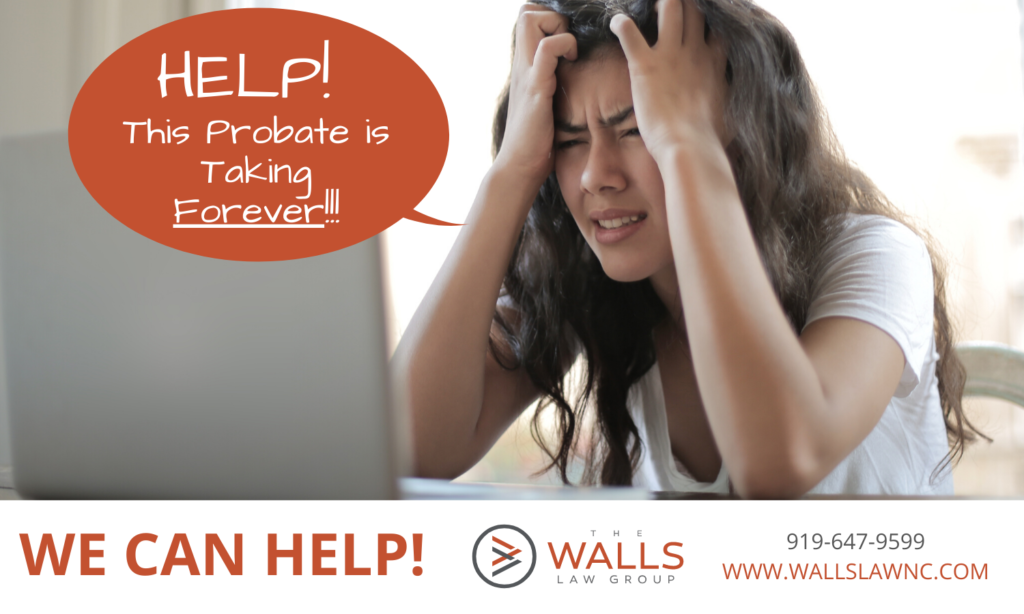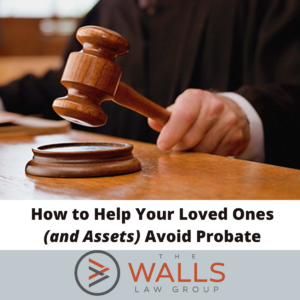![]()
3 Simple Ways to Avoid Probate Costs

THE
BAD
NEWS
When your estate (ie. all of your money and property) has to go through probate (the court-supervised process of validating your Will and/or distributing your money and property), it can be subject to a variety of costs stemming from attorneys, executors, appraisers, accountants, courts, and state law. Depending on the probate’s complexity, fees can run into tens of thousands of dollars.
THE
GOOD
NEWS
You can do some very simple things right now to reduce your estate’s probate costs – or even avoid them entirely!
Read on to learn about 3 simple ways to avoid these probate costs!
Here are 3 simple ways to reduce or eliminate costs by avoiding probate:
1. Name beneficiaries whenever possible
The probate process only applies to accounts or property that are in your name at the time of your death. By naming a beneficiary on these accounts and property, the assets will be transferred automatically to the beneficiary you named – without any court involvement.
Depending on your states, common beneficiary designation assets include:
Life insurance
Annuities
Retirement plans
Real estate
Caution: When someone is named as a beneficiary of an account or piece of property through the use of a beneficiary designation, he or she will receive that account or property outright, which could subject the account or property to claims asserted by the beneficiary’s creditors.
2. Create and fund a Revocable Living Trust (RLT)
You remain in charge of all legal decision, as well as, the use and enjoyment of the assets you put into your RLT until your death because you will almost always be the Initial Trustee AND the beneficiary of your Revocable Living Trust (RLT). You must be certain that you have properly transferred the ownership of your accounts and property to the RLT by re-titling them into the name of the trust (called “Asset Alignment” or “Funding your Trust”). Then, after your death, whoever you named as your Successor Trustee will manage and distribute your assets – according to your wishes.
A trust works very well to avoid probate if it is properly created and funded by an experienced estate planning attorney.
TIP: As an added bonus, a Trust does NOT go through the probate process, so it’s an entirely private process, whereas, Wills are probated and your assets and information are pubic record.
3. Own property jointly
Probate can also be avoided if the property you own is held jointly with a right of survivorship. Similarly to a beneficiary designation, joint ownership has the effect of automatically transferring the ownership upon your death, but most often applies to real property or real assets, whereas beneficiary designations like payable on death (POD or TOD) accounts are usually financial accounts or insurance policies.
There are several ways that you can establish joint ownership of property, such as:
Joint tenancy with right of survivorship – ownership simply transfers to other tenants upon your death;
Tenancy by its entirety – a form of joint tenancy with a right of survivorship, but only for married couples in some states;
Community property – property obtained during a marriage in some states;
State laws play an important role here. We can help you determine which form of joint ownership, if any, is a good fit for you.
Caution: Just as with a beneficiary designation, adding a joint owner to your accounts or property can subject the accounts or property to claims asserted by the new joint owner’s creditors. Moreover, this vulnerability begins the moment they are added. This means that your accounts or property could be seized by your new joint owner’s creditors even while you are still alive.
WE CAN HELP YOU AVOID PROBATE
We will help you decide whether it makes sense to avoid probate in your situation, and, if so, the best way to do so.
Contact our office today at 919-647-9599
or the form below to schedule your appointment.
We’ve made it easy and convenient!
We can meet with you virtually, by phone, or in person – whatever you prefer.
RELATED RESOURCES:
Get in touch!


